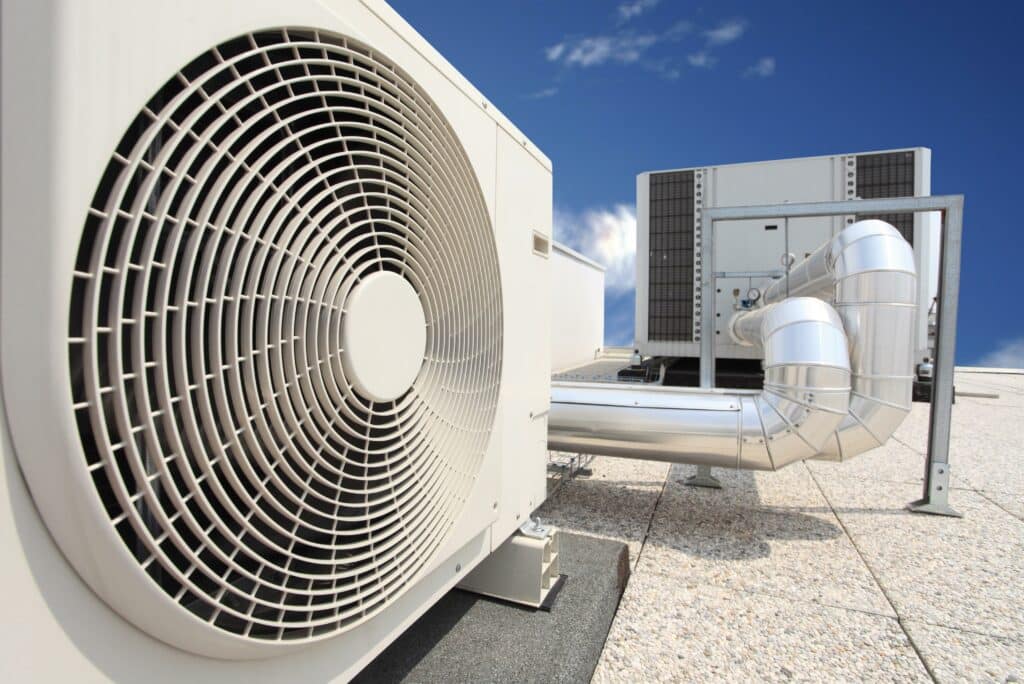Decisions made early in a project’s lifespan can significantly impact your company’s bottom line long after a project is complete. For example, an HVAC unit that is too large will consume more energy than necessary while producing excessive indoor humidity. While, on the other hand, an HVAC system that’s too small will not cool or heat the building adequately as well. With this in mind, we offer the following advice on selecting the best HVAC system for your building and your budget, now and in the future.
On average, heating and cooling account for 40% to 50% of a building’s yearly energy usage. Given this, increasing the efficiency of a facility’s HVAC systems is imperative to significantly reducing total operating costs. Identifying how the system will be used by the building’s occupants is as equally imperative to improving operating costs as well. Engineering firms like VP understand this, approaching each project holistically by carefully examining a system’s mechanisms individually to identify ways to improve them, ultimately decreasing operating costs.
Engineers often examine a building’s ventilation needs first when designing its heating and cooling system. By making these determinations during the design phase, engineers can reduce the heating and cooling load, a crucial contributor to an improved bottom line. For example, by utilizing demand-controlled ventilation, engineers are able to reduce the amount of ventilation air by providing only the exact amount required by the occupants at that moment, significantly reduce the heating and cooling load. Engineers can take it a step further by utilizing any number of energy recovery options to precondition and temper the ventilation air to further decrease the load.
Ensuring that your facility’s system is Energy Star compliant also will go a long way to decreasing your operating costs. Operated by the Environmental Protection Agency (EPA), the Energy Star program assists commercial property owners in making more efficiency-focused purchasing decisions. All products, not only commercial systems, that bear the Energy Star label must meet the program’s stringent performance standards. According to the EPA, “Products that have earned the ENERGY STAR [label] help you save energy and money without sacrificing performance. By using less energy, these products also help reduce greenhouse gas emissions that contribute to climate change.” Some examples of Energy Star include air conditioners, geothermal heat pumps, air-source heat pumps, ductless heat pumps and boilers and furnaces. While these certified heating and cooling products may cost more than standard products, they can yield annual energy bill savings of 10 to 30 percent.
Regardless of the system selected, an even greater impact on its effectiveness and efficiency is its installation, maintenance and use.
· Installation: Equipment must be installed by a qualified contractor to ensure that the exact amount of conditioned air needed reaches all areas of the building.
· Maintenance: Following installation, the equipment and auxiliary components must be maintained regularly and repaired, as needed, to ensure optimal performance.
· Usage: Last and probably the most important, how the systems are used by the occupants can have a significant impact of energy usage. The use of a programmable thermostat is perhaps best option to allow the occupants to operate the heating and cooling systems as needed to maintain the temperature in each area of the building.
When it’s time to select a commercial heating and cooling system, many business owners can be overwhelmed by the options available. With our help and guidance, we can help make the decision process easier, ultimately selecting the system that not only best meets the company’s cooling needs, but positively impacts your company’s bottom line. Contact our team of expert engineers today for assistance.
______
About VP Engineering
VP Engineering is a top Charlotte-based MEP design firm offering engineering expertise in senior living, multi-family, hospitality, and retail/commercial markets worldwide. With experience in a wide range of building types, our MEP engineering services help keep projects on budget and achieve your goals. Learn more at vpce.com.



